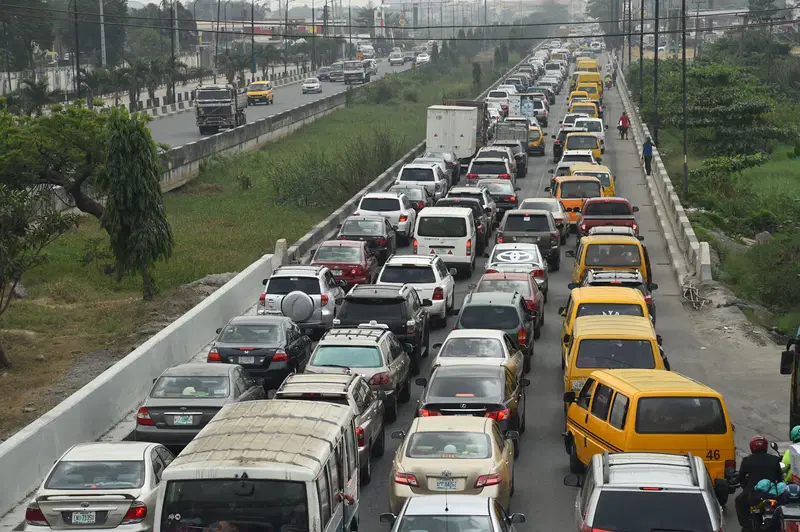News
Traffic Free Flow: Lagos launches 24-hour operations, inaugurates night response team

•Dislodges illegal squatters, criminals under Apapa, Ijora bridges
•Uncovers illegal diesel dump site
The Lagos State Government, through the Lagos State Traffic Management Authority (LASTMA), has officially launched a 24-hour operational framework to enhance traffic management and enforcement across the metropolis.
Reaffirming the government’s commitment to urban order, public safety, and infrastructure renewal, Special Adviser to the Governor on Transportation, Sola Giwa, stated that the initiative will transform traffic governance and restore environmental integrity throughout Lagos.
Speaking at the launch on Thursday, Giwa emphasized that the new framework will ensure seamless mobility and safe commuting around the clock, aligning with Governor Babajide Sanwo-Olu’s vision for an efficient and continuously operating city.
“This initiative reflects the governor’s strategic ambition to guarantee the uninterrupted movement of people, goods, and services in Nigeria’s economic hub—free from congestion and disorder,” Giwa said.
He added that the 24-hour regime demonstrates the administration’s commitment to vigilance, operational efficiency, and disciplined traffic regulation, particularly as the festive season approaches, bringing increased vehicular and commercial activity.
The framework is designed to enable continuous monitoring, rapid emergency response, and swift clearance of traffic obstructions, thereby reducing congestion and improving the commuting experience.
A key feature of the initiative is the creation of the Night Rapid Response Gang—a specialized LASTMA unit tasked with addressing nighttime traffic incidents such as vehicle breakdowns, collisions, and other obstructions on major roads.
As part of the broader reforms, the state government carried out a clearance operation along Apapa Road, Costain, and the Ijora Under Bridge. Illegal structures and shanties were demolished, and squatters dislodged to restore free traffic flow and improve public safety.
The enforcement exercise, led by Giwa in collaboration with LASTMA, the Nigeria Police Force, Mobile Police (MOPOL), the Lagos State Task Force, and the Lagos State Environmental Sanitation Corps (LAGESC), resulted in the removal of unauthorized traders, makeshift shelters, and various environmental violations.
During the operation, officials uncovered an illegal diesel dumping site and impounded large quantities of expired plantain chips and cheese balls stored in unsanitary conditions—highlighting the government’s commitment to public health and environmental protection.
The exercise followed repeated warnings and public awareness campaigns urging illegal occupants to vacate bridge areas. Teams also cleared blocked drainage channels filled with metallic debris, which had contributed to flooding and environmental degradation.
Several commercial buses and tricycles operating unlawfully along the newly constructed Costain Bridge and Apapa Road were also impounded. Shanties near St. Catholic Church School on Apapa Road were demolished, restoring the area to its intended urban and educational use. Criminal hideouts beneath the Ijora Bridge were dismantled to enhance security.
Giwa reaffirmed the Sanwo-Olu administration’s unwavering commitment to public safety, environmental protection, and the rule of law, stating, “Lagos must remain a city defined by structure, order, and discipline.”
LASTMA General Manager, Olalekan Bakare-Oki, urged traders, transport operators, and commuters to comply with government directives, use designated markets and parking areas, and support efforts to maintain a safe and orderly city.
-

 Metro22 hours ago
Metro22 hours agoCourt ruling didn’t exempt states – Group tells Lagos AG over VIO activities
-

 News24 hours ago
News24 hours agoFG Rejects US Congressmen’s Stance On ‘Religious Persecution’
-

 Politics22 hours ago
Politics22 hours ago‘A stain on democracy’ — ADC condemns attack on Obi, party chieftains in Edo
-

 News24 hours ago
News24 hours agoPROFILES: The DIGs Who May Be Affected By Disu’s Appointment
-

 News20 hours ago
News20 hours agoGunmen invade church in Ondo, abduct six worshippers
-

 News22 hours ago
News22 hours agoUS Push To Scrap Sharia Sparks Outrage
-

 Politics22 hours ago
Politics22 hours agoQuitting Nigerian politics, my best decision ever – Moghalu
-

 News22 hours ago
News22 hours agoControversy over Tunji Disu’s IGP appointment 48 days to retirement


















